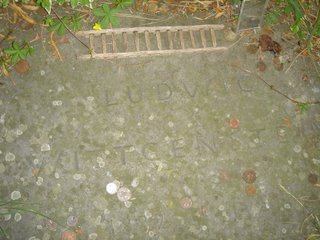
The writings of Ludwig Wittgenstein, along with those of Martin Heidegger, are still very influential among contemporary philosophers and theologians. The primary contribution of these two is their challenge to classical metaphysics, both Platonic and Aristotelian. Heidegger's challenge is a more direct attempt at destroying Western metaphysics and its forgetting of Sein=Being. The philosophy (which is way too monolithic a term) of Wittgenstein (W) is a more constructive engagement with the world and, hence, with tradition, that W recognized as necessary to human knowing. In this W's analysis (a better term for his method) is less pretentious, less grandiose, and less ambitious than Heidegger's.
W's analysis, especially his work from the mid-1930s on, best expounded in his Philosophical Investigations, is more successful in engaging philosophical "problems" ( W did not believe in philosophical problems as such- the problems arose, according to W, from linguistic confusion- a great book on this is Wittgenstein's Poker), such as the subject/object distinction at the root of the idealism/realism split that reaches back to Plato and Aristotle, than Immanuel Kant, whose deliberate project in the Critique of Pure Reason (which W first studied while a prisoner of war in 1917-18) was to overcome these same "problems." W, some 55 years after his death can still be considered a giant. The immediacy and depth of his thought, along with his refusal to be easily satisfied, make his work still fresh. Since theology is, to paraphrase English theologian Nicholas Lash, watching one's language before and about God, it is easy to imagine the influence Wittgenstein has had on Christian theology. Edward Schillebeeckx, OP, whose experience of God I have grossly oversimplified below for your convenience, was one of the first Catholic theologians writing or translated into English to make use of W's philosophy as a basis for some of his theological investigations.
One of the targets of W's analysis in the later phase of his life was the Cartesian turn-to-the-subject. This so-called Copernican revolution started by Rene Descartes is heralded as the beginning of modern philosophy. W undertook the challenge posed by Descartes' method of doubt very seriously and, like Kant before him, understood that this method leads to skepticism and solipsism. Like all philosophical errors, Wittgenstein held that it is an error in language that led to the confusions brought about by Descartes and compounded in various idealistic philosophies of Berkeley, Hegel, Fichte and, to some degree, in Kant himself. Perhaps the best book on Wittgenstein's rejection of Descartes "hermit in the head" view of the self and his prescription for this philosophical ailment is Fergus Kerr, OP's book Theology after Wittgenstein. W's insistence on human embodiness is a wonderful corrective to the temptation of Christian dualism, a remnant of the Cartesian idea, sung about by the Police (one of my all time favorite groups), that we are spirits in the material world.
W, in his notes, published posthumously, as were most of his "books," in a work entitled Philosophical Grammar, wrote:
"One of the most dangerous ideas philosophically is, oddly enough, that we think with, or in, our heads.
The idea of thinking as an occurrence in the head, in a completely enclosed space, makes thinking something occult."
Rather, we think as embodied persons who belong to human communities, which impart language. Since language is necessary for thinking, so are communities, traditions, etc. Or, as Fr. Kerr, drawing conclusions from W's writings, nicely puts it: "It is neither metaphysical realities (whether [idealistic] forms or [realistic] atoms) nor subjective states of consciousness (raw feels, mental pictures, innate ideas) but Lebensformen [forms of life] that are 'the given'. What is given is the human world: neither meanings in the head, accessible by introspection, nor essences in the objects around us, yielding to analysis, but the order that human beings establish by their being together." (Theology after Wittgenstein, pg. 69)
An overlooked book in the W oeuvre is Wittgenstein: Conversations 1949-1951 by O.K. Bouwsma and edited by J.L. Craft and Ronald E. Hustwit. These are published accounts of conversations that Bouwsma, an American philosopher, had with Wittgenstein during these years. "There is an intensity and an impatience about him," Bouwsma wrote after first meeting Wittgenstein on his first trip to the U.S. in July 1949. His intensity and impatience, according to Bouwsma, "are enough, certainly, to frighten one". Gladly, Bouwsma found W very congenial and developed a relationship with him during these last few years of W's life.
In his last visit to W in January, 1951, as the philosopher was at the very end of suffering through terminal of cancer, which killed him in April, Bouwsma records:
"On Saturday in the very act of turning to avoid a pain [a morbid real-life example of bodily expression, using his own oft-used case of expressing pain] he asked if I had ever heard of Coueism. I had: 'Every day in every way I am feeling better and better.' He remembered the sentence. I said I thought it might help if you could believe it. He said: Yes, since fear is a part of one's ailment, saying this might help to allay fear. His mind was still as clear as could be ". These conversations end with: "On Sunday, he also talked about his down comforter" (Conversations, pg. 75).


No comments:
Post a Comment